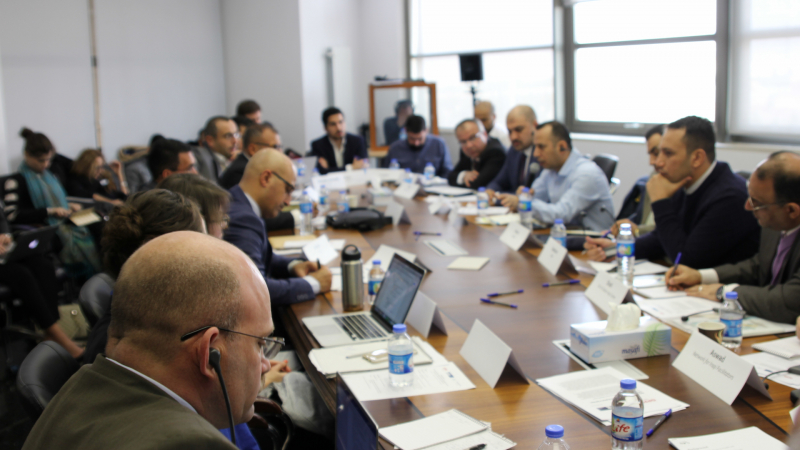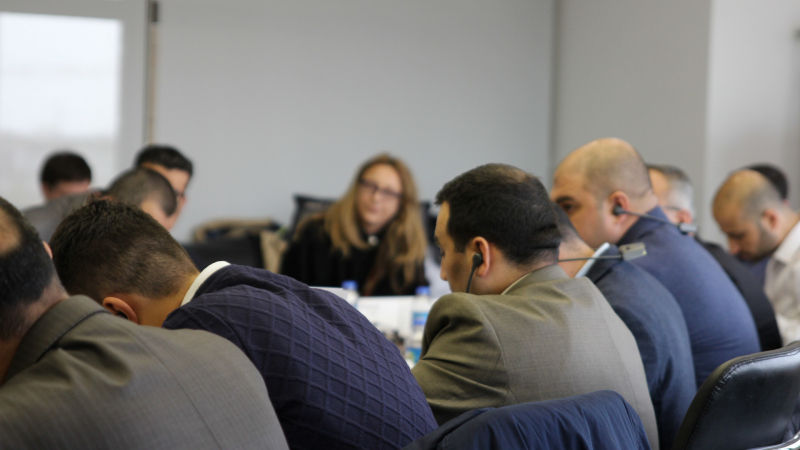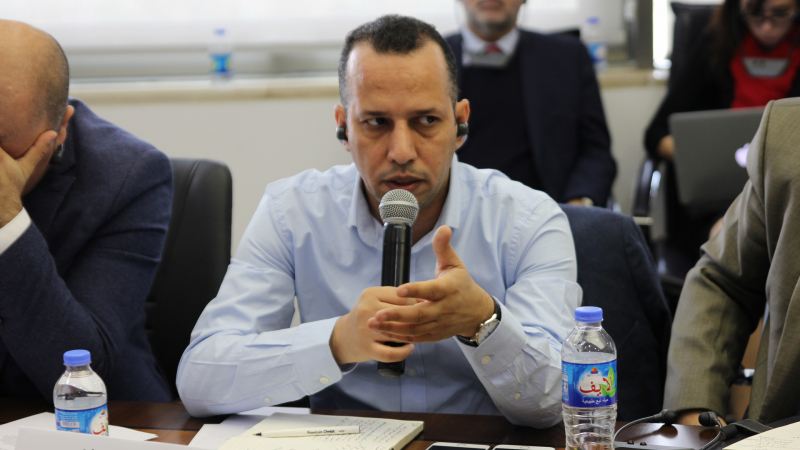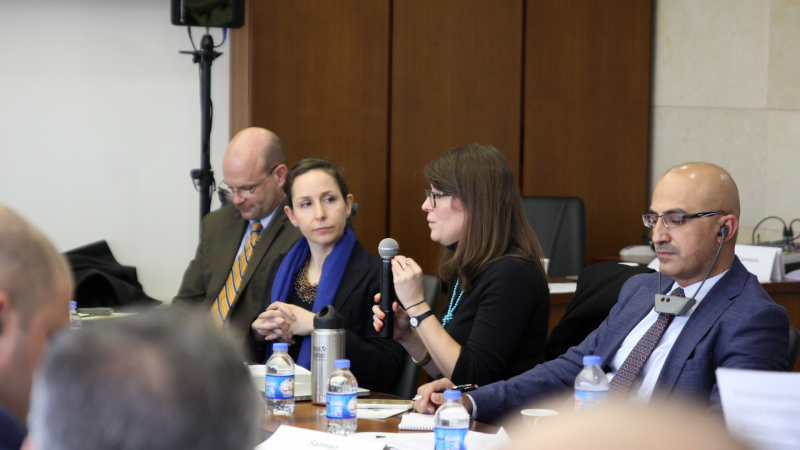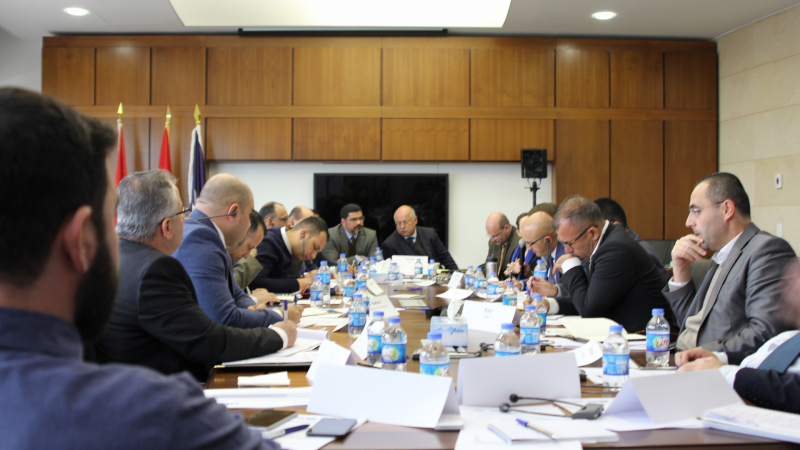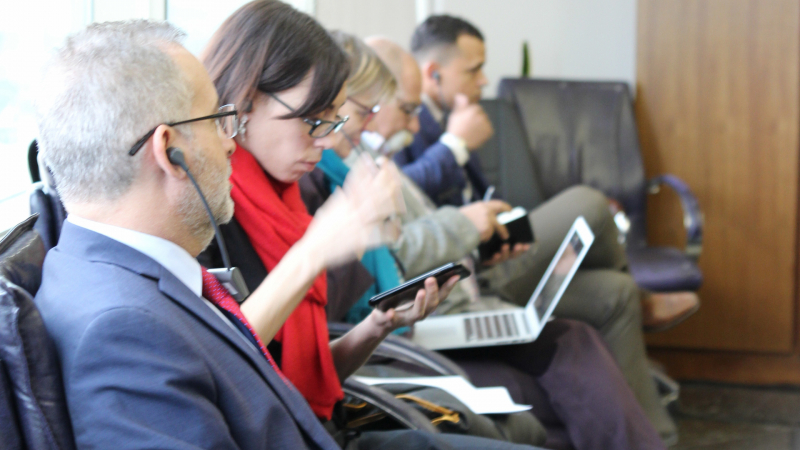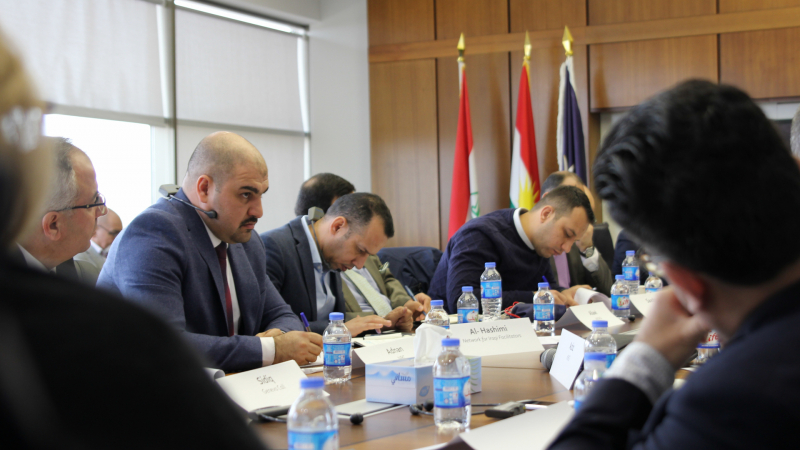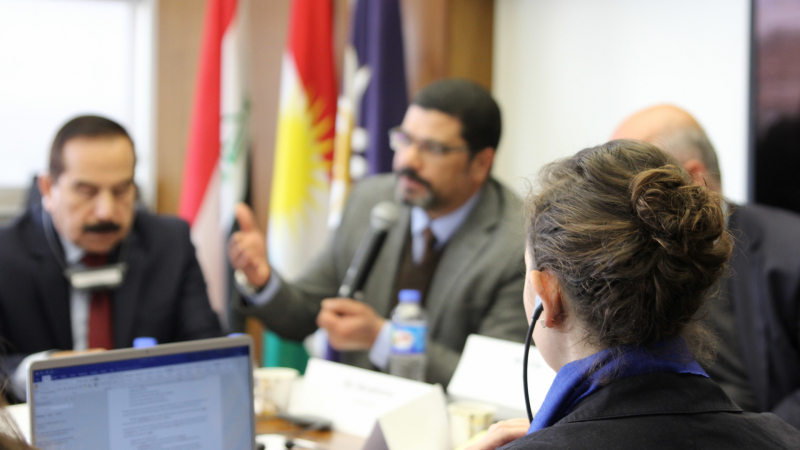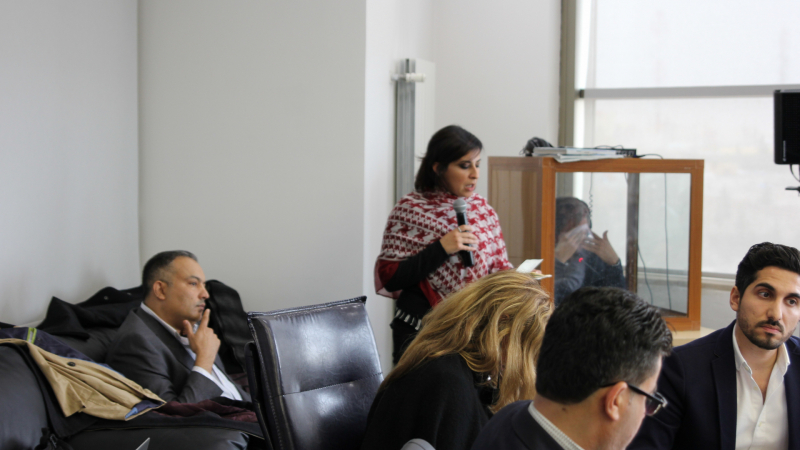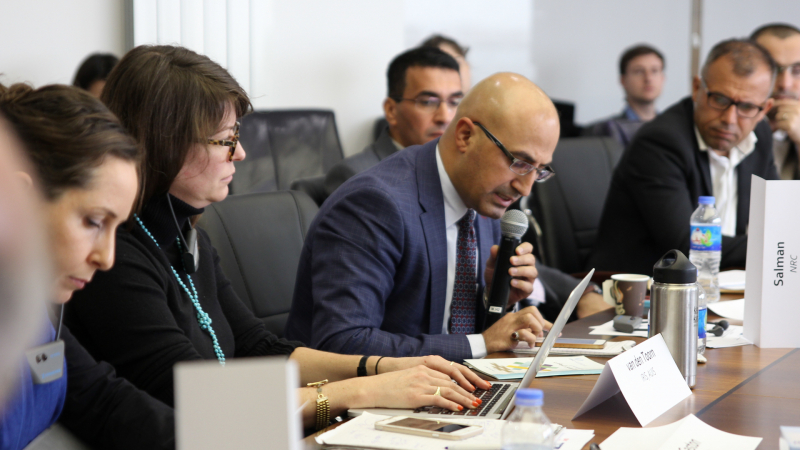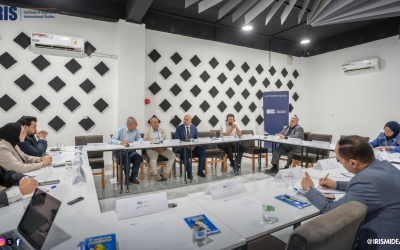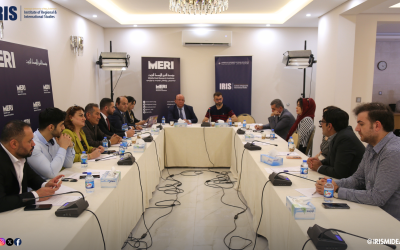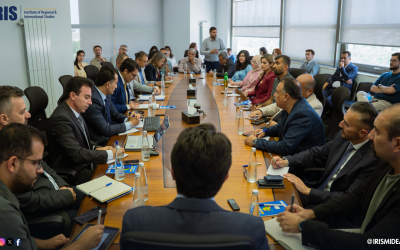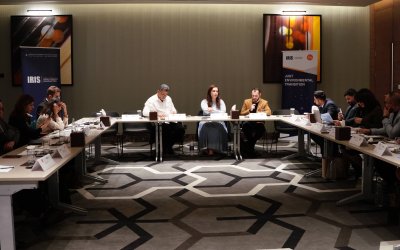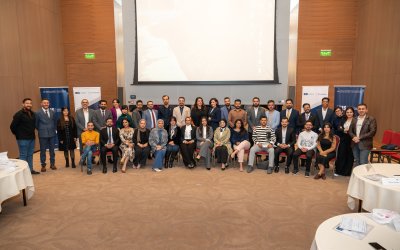On December 15th, 2016, the Institute of Regional and International Studies (IRIS) at the American University of Iraq, Sulaimani (AUIS) hosted a working discussion titled “What comes after Mosul? Local and national security relationships, and the impact of local or non-state security force proliferation.”
In the last two years, regional or community forces, non-state militias, and other forms of local security actors have proliferated in Iraq. Peshmerga forces, a range of Shia and tribal militia forces, and local minority community forces were quickly mobilized to fill gaps in Iraqi Security Forces to counter ISIL. After the fall of Mosul, what comes next to these forces? The working discussion focused on the impact on Iraq’s political and security landscape of the reliance on these regional or local actors.
The event served two purposes. First, it was an opportunity for researchers, practitioners, and policymakers engaged in stabilization, rights protection, and relief efforts to collectively map on-going support or research efforts in recently liberated areas (as well as other impacted areas of Iraq), and to discuss future challenges to reconstruction, development, and the re-establishment of rule of law and governance.
Second, it helped inform a recently launched three-year research initiative on the impact of non-state, Local or Hybrid Security Forces (LHSFs) in Iraq, Afghanistan and Syria, funded by the Netherlands Organization for Scientific Research (NWO) WOTRO Center for Global Development, and carried out in Consortium with the Berlin-based Global Public Policy institute (GPPi), and the Afghanistan Analysts Network (AAN). It was the first of three stakeholder meetings to be held over the course of the project.
This closed roundtable, held under the Chatham House rule, convened representatives from the Government of Iraq (GOI) and the Kurdistan Regional Government (KRG), local and international NGOs, as well as analysts and consulate representatives.
Session – 1:
State-of-Play and Role of Regional, Local, Hybrid Security Forces (LHSFs)
The first session’s aim was to identify key non-state and hybrid security players currently involved in fighting ISIS, and assessing their relative effectiveness. In that sense, four discussants opened the session by briefly introducing the Hashd al-Shaabi, or Popular Mobilization Forces (PMF), the Peshmerga, as well as Sunni and minority tribal forces. A salient takeaway was the important level of internal fragmentation within those groups. Participants also highlighted the slow progress of the Mosul operation, deploring ensuing state of instability. Competition between non-state and hybrid security groups, exacerbated in part by the availability of weapons and support by a variety of different actors (including international and regional actors), was also central to the discussion.
Another important theme in the discussion surrounded the recent “legalization” of the Hashd al-Shaabi, or Popular Mobilization Forces (PMF). The Iraqi Parliament recently passed a law bringing the PMF under the direct control of the Prime Minister’s office. Many participants argued that the law is fundamentally problematic, since it aims to formalize a non-state armed group lacking legitimacy. Meanwhile, it also appeared to make any serious attempt at disarmament and demobilization less likely, and might increase the risk of Shia domination within Iraq’s security forces following the defeat of ISIS.
Other issues discussed the growing involvement of the Kurdish Peshmerga forces in the fight against ISIS and their territorial expansion and the empowerment of Sunni tribal forces and minority mobilization.
Session – 2:
Short and Long-term Impacts of LHSFs
The discussants opening this second session focused on local, community-level reconciliation processes, issues associated with return to liberated areas under the control of non-state security forces, as well as the long-term political challenges associated with the legitimization and empowerment of militias. The recently heightened mobilization of the Sunni tribal forces, as well as their relations with other non-state security actors and related issues of violence escalation and revenge, were also central to the discussion.
Key discussion points included community reactions (notably a lack of trust) in response to abuses by the different armed groups, and the lack of accountability for those abuses; the way that this lack of trust has hindered return and reconciliation; the political dynamics associated with competition between non-state security actors; the exclusion of minorities from the state’s security framework, which has hindered or prevented altogether their return following liberation; and finally, the very localized nature of conflict, contextualized within Iraq’s diverse ethno-sectarian landscape.
BACKGROUND PAPERS
Prior to the meeting, two background papers were circulated among participants.
Click here to download the full background paper on Iraq.
Click here to download the full background paper on Afghanistan.
Read more on the research initiative here.

